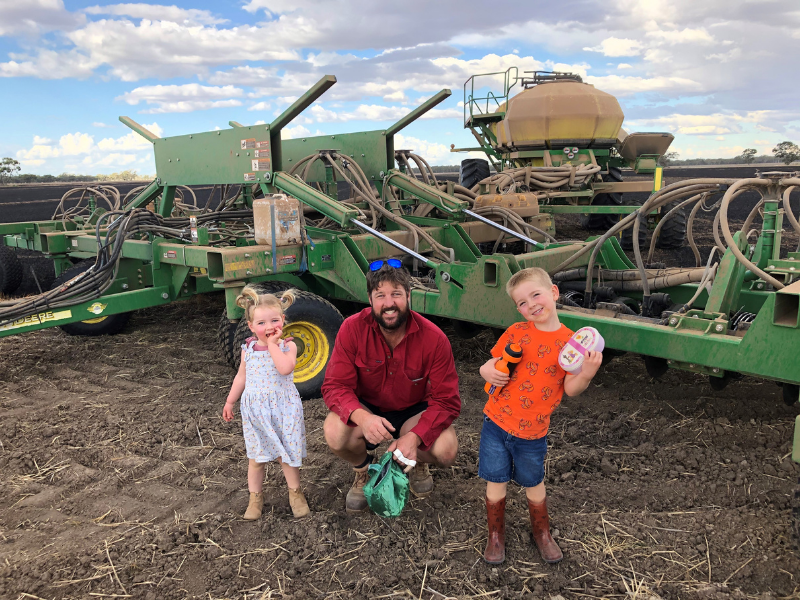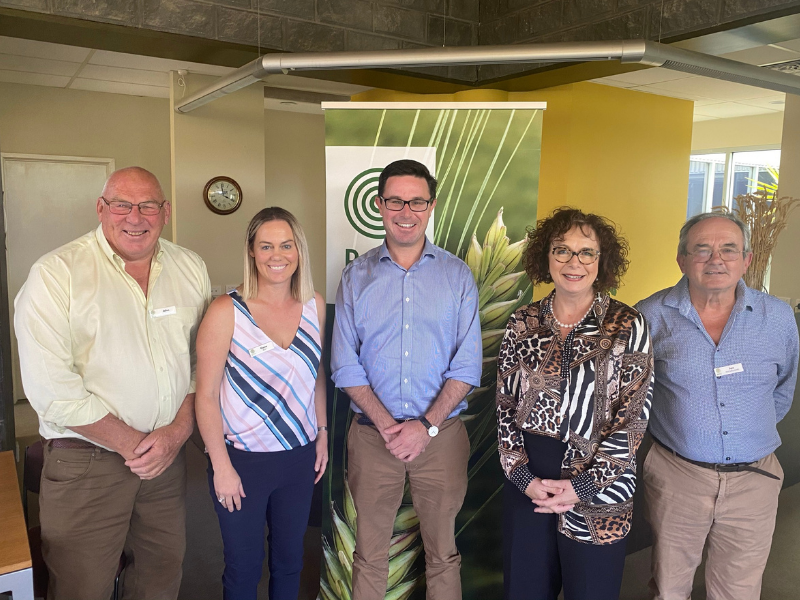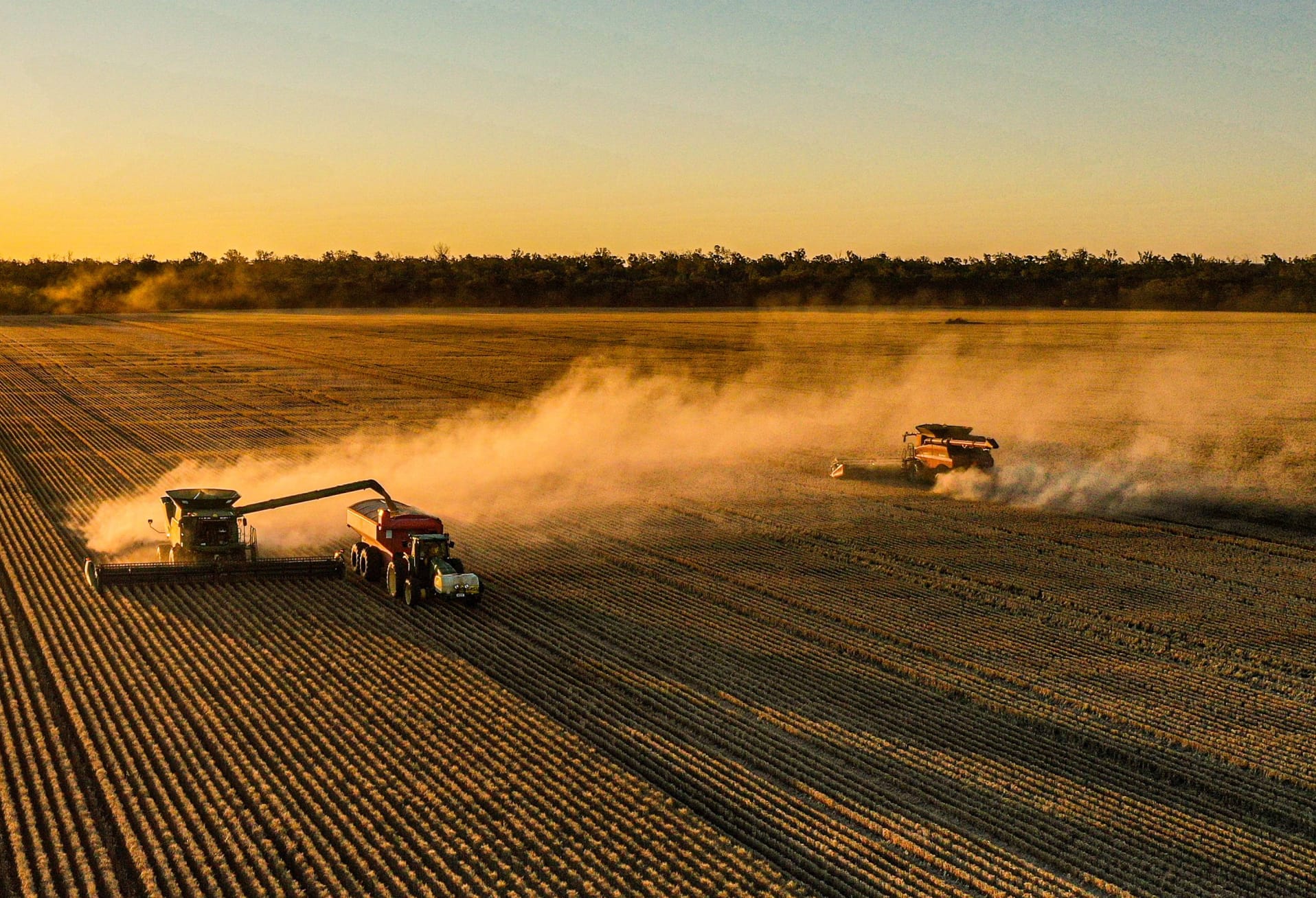We recently caught up with third generation farmer, Diana Wheaton, to learn about her pathway into agriculture and how this led to her current career as a fulltime farmer in the Wimmera.
Tell us about yourself?
I grew up on my family farm northwest of Nhill. After completing school in 2017 at Nhill College, I moved out of home and started work as a livestock station hand in Telopea Downs for Hassad Australia. Towards the end of 2018 the station changed hands to AJ & PA McBride. After finishing up with McBride’s at the end of 2019, I moved to Geelong to study a Bachelor of Agricultural Business at Marcus Oldham College. In 2021 as part of my degree middle ‘placement’ year, I headed up to Walcha in NSW working for Jock Nivison at Yalgoo Pastoral. Yalgoo is a genetic based property running a Merino stud, Poll Hereford stud and an Angus stud. After graduating at the end of 2022, I headed back home to the family property and started working full time helping to manage our livestock.
Tell us about your farm?
My family farm is northwest of Nhill, situated in Yanac South and Telopea Downs area. We run a mixed farming operation that consists of broadacre cropping, growing wheat, barley, canola, faba beans, lentils, vetch for grazing and hay, and a self-replacing Poll Hereford herd. We finish our vealers off in a feedlot, self-replacing Merino flock, joining the other half over Border Leicester rams targeting the first cross ewe sale market. As well as a Merino stud, Peechember West Merinos.
I am the third generation to be farming our property. The farm is owned by my father Dean and my Uncle Brett. With four workers including myself, my younger brother Wallace and my two cousins Harry and Angus.
What ignited your passion for agriculture, and how did you decide you wanted to work on-farm fulltime?
Obviously, growing up on a family farm I had always been around/saw what was going on. I enjoyed helping dad with the livestock work, however, I never thought about having a farming career. I had always been interested in becoming a nurse or a midwife. However, while in Year 12, I discovered a passion for farming and decided I wanted to give it a go while taking a gap year. I wanted to learn and see other methods/practices outside of the family farm. During this gap year, I decided that I wanted to continue farming as a career. One of my colleagues at Hassad had recently graduated from Marcus Oldham and highly recommended it, so after doing further research into the college I decided that’s where I wanted to go.
Have you always been interested and wanted to work in the livestock sector?
My father, Dean, has always been passionate about our livestock and livestock genetics. So naturally, growing up and helping dad on the farm has rubbed off on me.
What’s happening on the farm recently?
On the livestock side of the business, the stud ewes have finished lambing from the AI (Artificial Insemination) program and the ewes joined by rams are a few weeks in to lambing, our heifers have almost finished calving, and the cows are just starting to calve. We are also currently feeding the vealers in our feedlot.
On the cropping side of the business, we have finished spreading gypsum and cow manure from the feedlot. Seed cleaning has also been completed. Getting everything finalised to start spraying and sowing our fodder crops the first week in April.
Additionally completing general farm maintenance and infrastructure upgrades have also been a high priority.
What are your farm plans for 2024 and beyond? Do you plan to do anything differently or implement any new ideas?
Since coming home to work on the farm, I have restarted our stud ewe AI program in the aim to improve our sheep genetics and move towards a poll stud. Additionally, expanding the collection of data on our ewes and rams will hopefully further promote and help sell our Merino stud.
There is potential to expand our feedlot head numbers and build new pens. In doing this, we could either purchase vealers to grow out or increase breeding cattle numbers by leasing/buying more land when possible. If expanding breeding cattle numbers, I would choose to cross these additional cows over an Angus bull.
Last year I introduced AgriWebb to the farm, this has helped the farm with our livestock husbandry and data management. Hopefully encouraging other members to use this program too, making it easier.
Drought is an inevitable aspect of the climate we farm in. How is your farm business preparing for future droughts or potential financial shocks within the business?
Managing a mixed farming operation has supported our business with cashflow throughout the years, helping to reduce potential unexpected business financial shocks. Throughout the last few years, we have been extremely fortunate to have had several good years in a row. This has allowed the business to keep upgrading all our machinery, equipment, and infrastructure. One focus of the farm to help drought proof our property due to our livestock numbers was building multiple hay sheds with the aim of having two years’ supply of hay on hand. Likewise, upgrading our on-farm grain storage for stock management.
What is your association with BCG?
My father has been a BCG member for years. I have had the opportunity to attend multiple events with him over the years. I have enjoyed going to the paddock trial days and comparing the up-and-coming crop and pasture varieties. Additionally, social interactions are a highlight. I recently attended the BCG Young Farmer Network Ball.

The Victoria Drought Resilience Adoption and Innovation Hub is a state-wide collaboration of 10 organisations.
Led by the University of Melbourne and with headquarters at UM’s Dookie Campus, the Vic Hub is a Partnership between five farming organisations (Birchip Cropping Group, Food & Fibre Gippsland, Mallee Regional Innovation Centre, Riverine Plains and Southern Farming Systems), four universities (UM, Deakin, Federation and La Trobe), and the State Government (through Agriculture Victoria).
One of eight hubs established nationally under the Australian Government’s Future Drought Fund (FDF), the Vic Hub works to enhance the drought preparedness and resilience of Victoria’s agricultural industries, the environment and regional communities, encompassing broader agricultural innovation. Engaging with a range of industry and community stakeholders, the Vic Hub links research with community needs for sustainable outcomes.













